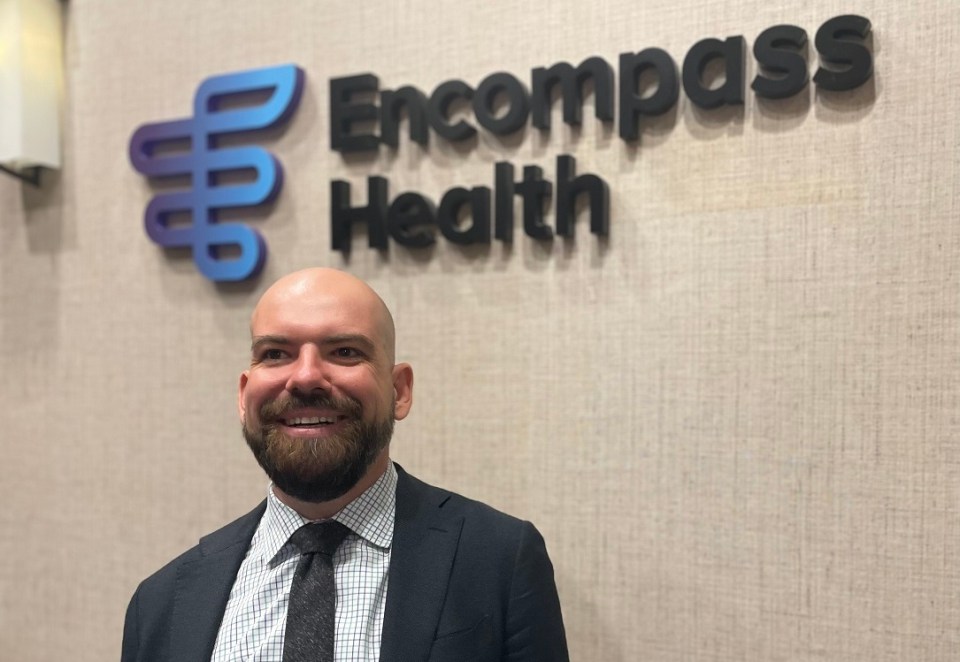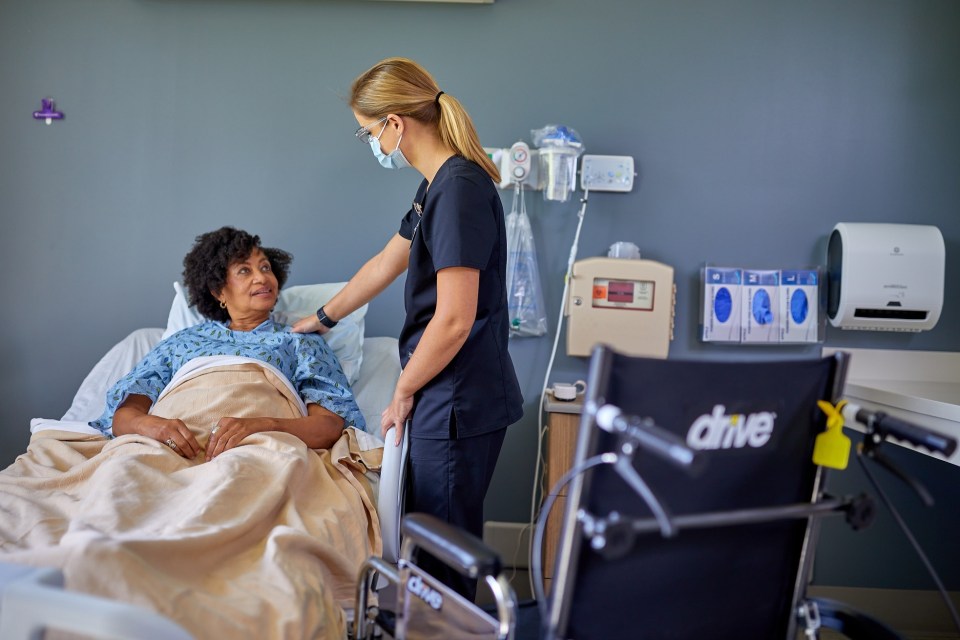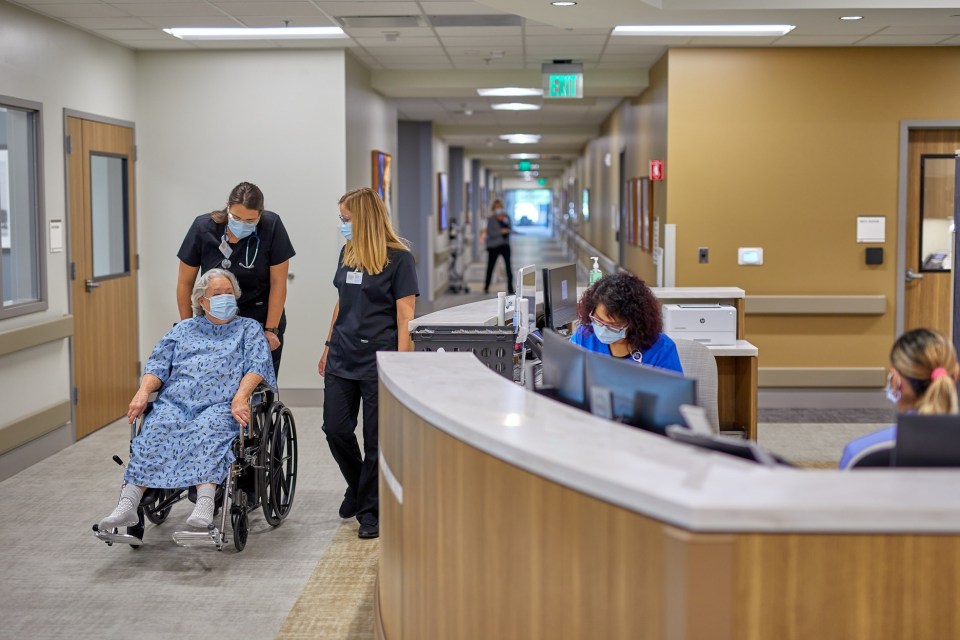Katrina Hill is eager to interact with patients at Encompass Health Rehabilitation Hospital of Florence. Wearing her signature style—flowers in her hair with outfit and accessories to match—she offers words of encouragement, and, of course, her bright smile.
Though Katrina is not a clinician, she feels it is part of her job to help lift the spirits of patients, especially those who are struggling. Her co-workers at the Florence, South Carolina hospital said that’s the ways she’s always been, but Katrina, a nutrition services aide, said she’s more compelled than ever to help patients after suffering her own health issues last year.
At the age of 30, Katrina had a stroke. “It just happened so quickly,” she said in a soft, careful voice—the stroke impacted her speech the most. “I was awake during the whole thing. I was on the floor and really couldn’t get up. My mom took me to the ER, and they said I had a mild stroke. It didn’t really hit me; it still hasn’t hit me.”
In addition to impacting her speech, the stroke also left her weak on her right side, and she was struggling to walk. After four days in an acute care hospital, she was admitted to Encompass Health Florence, where she was greeted with some familiar faces.
“We were really excited that she was able to have rehab here,” said Rona Ewart, Katrina’s supervisor and director of nutrition services at the hospital. “We were able to encourage her. She was even able to do some kitchen chores in therapy.”
With much of nutrition services work being very physical, Cody Deer, Katrina’s occupational therapist, said he wanted to make sure any therapy they did related to her job was safe. They focused on fine motor skills, including tasks such as folding napkins and sorting silverware.
After some 21 days at Encompass Health Florence, Katrina was discharged from the hospital. She continued to received outpatient therapy.
She had her stroke on May 26, and was able to return to work in September. Cody said it’s gratifying to see Katrina back at work, but more importantly, back to her life, something he often doesn’t get to experience after a patient is discharged.
“We may get patients who will come back and visit after a couple months, but to see a patient in real world and real time doing their job … it’s quite rewarding and very meaningful.”
Katrina could say the same about her return to work. Since coming back, she’s quick to share her story of recovery with patients.
“Even before this happened, I had compassion for our patients, but now, even more,” she said. “If I have time, I’ll go in their room and tell them my story. Everybody is different, and everybody’s pain and tolerance is different, but I tell them, ‘Don’t give up; just keep going. It’s not going to be peachy keen, but don’t give up. Just take it one day at a time.”
That’s also what Katrina is doing since her return to work – taking it one day at a time. Each day she returns to her job, flowers in her hair, and she’s a little stronger and a little more determined to help and inspire those around her.
The content of this site is for informational purposes only and should not be taken as professional medical advice. Always seek the advice of your physician or other qualified healthcare provider with any questions you may have regarding any medical conditions or treatments.



